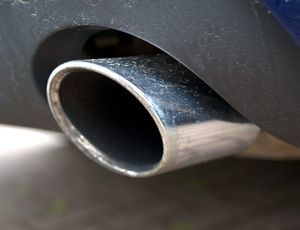
The development of an effective structural catalytic converter to reduce the amount of nitrogen oxides in fumes emitted by diesel engines and remove soot particles from them will be the goal of a joint effort of Polish and Chinese researchers. The project, headed by Prof. Zbigniew Sojka from the Jagiellonian University Faculty of Chemistry, will be run within the framework of the first bilateral grant competition organised by the National Research and Development Centre (Poland) and the Ministry of Science and Technology of the People’s Republic of China.
The competition for collaborative Polish-Chinese research projects is aimed at fostering the development of research partnership between the two countries, leading to new joint research projects and new contacts between individual researchers. Grant applications could be submitted by institutions of research and higher education as well as small and medium companies conducting research and development activities.
The introduction of the catalytic desulphurisation of petroleum made it possible to effectively reduce the level of sulphur oxides, but particles of soot and nitrogen oxides are still among the main pollutants emitted by diesel-powered vehicles, and their reduction is one of the major challenges for environmental catalysis. The increasingly tough regulations on emission of these pollutants has created a need for more and more sophisticated technological solutions.
The project by Prof. Zbigniew Sojka from the JU Department of Inorganic Chemistry is aimed to develop a tandem structural catalytic converter for simultaneous reduction of nitrogen oxides and elimination of soot particles from the fumes produced by diesel engines. The device will consist of a module for selective catalytic reduction of nitrogen oxides and a catalytic diesel particulate filter, functionally integrated by being fixed onto a cordierite monolith.
The research is to be carried out in three stages, including basic research (working out the composition and structure of active phases as well as their physicochemical profile along with activity tests) and industrial research (evaluation of the final version of catalytic converter at the diesel engine test facility). The first and second stage of the project will be carried out jointly, whereas the Chinese partners are exclusively responsible for the third stage. It is planned that after the full optimisation of both modules the catalytic converter will allow the reduction of nitrogen oxide levels by 90 percent at a temperature of 200-550 degrees Celsius and the lowering of ignition temperature of soot particles to about 280 degrees Celsius.
The Jagiellonian University will carry out the project in collaboration with Shenyang Normal University and Kunming Sino-Platinum Metal Catalysts Co. Ltd.





